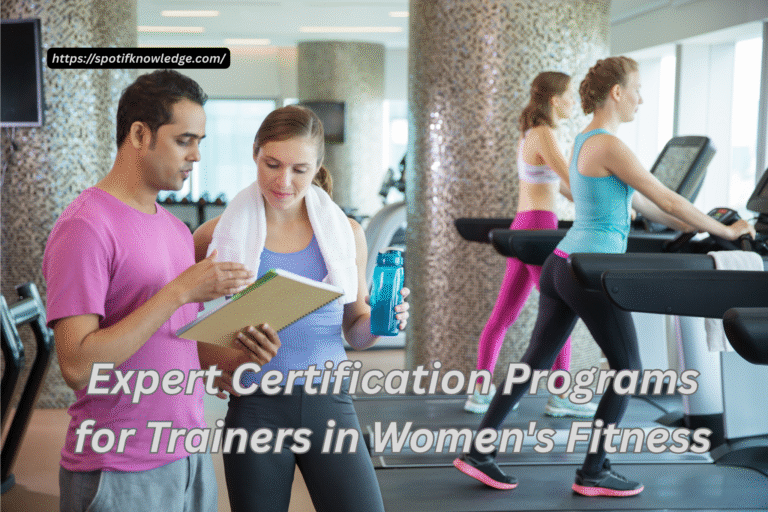Have you ever felt that most fitness programs are not made with women in mind?
A woman’s body changes through many stages, like periods, pregnancy, recovery, and menopause, and each stage needs a different approach. Trainers who understand this can give better support and create real results for their clients.
This article looks at expert certification programs that help trainers focus on women’s fitness and build the right skills to guide women at every stage of life. Read on.
Importance of Specialized Training for Women
Special training helps trainers understand the needs of women at different stages of life. It looks at things like hormones, pregnancy, recovery after birth, and menopause. With this knowledge, trainers can make workouts safe and effective.
Women also face issues such as bone health, pelvic floor strength, and energy shifts during their cycle. These details can change how a workout feels or how the body recovers. Knowing this helps trainers give better results and support.
Key Features of Women’s Fitness Certification
A women’s fitness certification teaches body and mind basics that are specific to women. It shows how to adjust workouts for different stages of life. Trainers gain the tools to guide clients in the right way.
The programs also focus on real skills like testing fitness levels and planning recovery. They mix lessons with practical examples that trainers can use right away. This makes the learning clear and useful.
Benefits for Trainers
Getting certified gives trainers new skills and more confidence. It also makes them stand out to clients who want someone with women’s health knowledge. This added trust can help build a stronger client base.
These programs also create new chances to work in gyms, studios, or private sessions. Trainers become known for their expertise and see more career growth.
Choosing the Right Certification Program
Selecting a program depends on your career goals and client base. Some certifications focus on general women’s health, while others go deeper into prenatal or postnatal care. It is important to choose a course that matches your interests and needs.
Accreditation is also a key factor to check before enrolling. Reputable certifications often carry recognition from trusted fitness organizations. This ensures the program holds value and supports long-term career growth.
For trainers seeking a flexible, self-paced option, they can consider Women’s Fitness Certification | ASFA. This program offers a broad foundation in women’s health and practical applications, making it a useful choice for many fitness professionals.
Stronger Women and a Stronger World
Women need fitness training that respects their bodies and the changes they go through. Trainers who study and focus on these needs can do more than teach workouts. They can help women feel stronger, healthier, and more confident.
Getting certified in women’s fitness is not just about learning-it is about making a difference. Trainers who choose this path can inspire real change and shape a better future for women’s health.
We hope you enjoyed reading this article. If you found it helpful, be sure to check out our blog for more informative resources.

